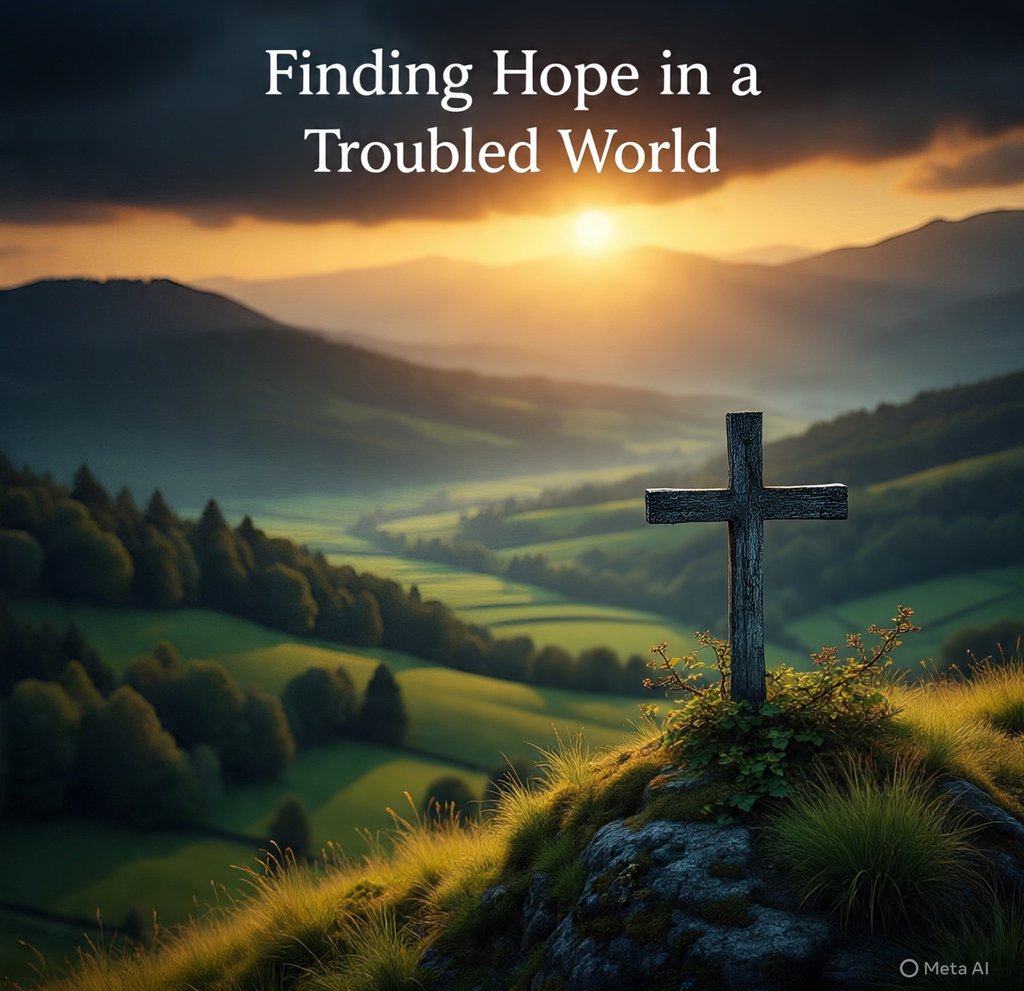Unshakable Hope: Trusting God’s Promise
BLOG
Javed Niamat
3 min read


Introduction: Finding Hope in a Troubled World
Life often feels overwhelming—especially in seasons of loss, injustice, or uncertainty. Many elderly people, as well as younger generations, wrestle with feelings of despair. Yet Psalm 9:18 speaks directly into that darkness with a radiant promise:
“But God will never forget the needy; the hope of the afflicted will never perish.” (Psalm 9:18, NIV)
This verse reminds us that no matter how dire our circumstances, God’s memory, compassion, and justice never fail. In this article, we’ll explore what this verse means, why it is relevant today, and how it offers unshakable hope for every believer.
1. Understanding Psalm 9:18 in Context
Psalm 9 is a song of praise written by King David, celebrating God’s justice and faithfulness. Verses 7–10 emphasize that God reigns forever, judging with righteousness and being a refuge for the oppressed. Verse 18 follows this theme, showing that while the world may forget the poor and afflicted, God never does.
In Hebrew, the word for needy (עֲנִיִּים – aniyyim) carries the sense of people who are vulnerable, weak, or marginalized. The word hope (tiqvah) means a confident expectation of good, rooted in God’s character—not just wishful thinking. David declares that God’s justice ensures hope for those who suffer.
2. God Never Forgets the Needy
Human memory fades, and society often overlooks the vulnerable. But God’s attention to the needy is unwavering. In fact, Scripture repeatedly shows His concern:
Exodus 22:23–24 – God warns against oppressing widows and orphans, promising to hear their cries.
Isaiah 41:17 – “The poor and needy search for water, but there is none; I the Lord will answer them.”
Luke 4:18 – Jesus declares His mission to bring good news to the poor and freedom to the oppressed.
For elderly readers, this truth is especially comforting. Even if society sidelines them, God’s eyes remain on them, full of compassion and remembrance.
3. Hope That Never Perishes
Earthly hope often fades—whether it’s financial security, good health, or social recognition. But Psalm 9:18 assures us that the hope God gives is indestructible. Why? Because it’s anchored in His eternal promises.
The Apostle Paul echoes this in Romans 5:5: “And hope does not put us to shame, because God’s love has been poured out into our hearts through the Holy Spirit.” Unlike fragile human expectations, God’s hope is living and enduring.
Example: Consider Corrie ten Boom, who survived Nazi concentration camps. Despite unimaginable suffering, she clung to Christ and later said, “There is no pit so deep that God’s love is not deeper still.” Her story illustrates Psalm 9:18’s truth: hope in God cannot perish.
4. How to Live in This Hope
Knowing that hope is secure is one thing; living in it daily is another. Here are four practical ways:
a. Strengthen Your Faith Through Scripture
Meditating on promises like Psalm 9:18 builds resilience. As Romans 15:4 reminds us, “Through endurance and the encouragement of the Scriptures we might have hope.”
b. Cultivate Prayerful Dependence
Prayer anchors us in God’s presence. When we bring our needs and anxieties before Him, we remember that He is our refuge.
c. Serve Others in Love
Paradoxically, hope grows when we give it away. Encouraging others, volunteering, or mentoring younger people are ways to live out God’s compassion.
d. Fix Your Eyes on Eternity
For those in Christ, ultimate hope is eternal life with God. As 2 Corinthians 4:17 declares, “Our light and momentary troubles are achieving for us an eternal glory that far outweighs them all.”
5. Hope for the Elderly: A Special Encouragement
As people age, they may face loneliness, declining health, or financial struggles. Yet Psalm 9:18 assures them they are not forgotten. The hope they carry in Christ is more vibrant than ever.
Example: Anna, the prophetess in Luke 2, was elderly and widowed. Yet she faithfully worshiped at the temple, hoping for God’s promise. Her patience was rewarded when she saw the infant Jesus—the Messiah. Her story testifies that even in later years, God fulfills His promises.
6. A Call to the Church
Psalm 9:18 is not just personal—it’s a call for the Church to reflect God’s heart. As Christ’s body, we are called to remember the needy, defend the oppressed, and extend hope to the marginalized. James 1:27 defines pure religion as caring for widows and orphans in distress.
This means creating spaces where elderly, poor, and hurting individuals feel valued and supported. It means being a community of living hope.
Conclusion: Unshakable Hope for Every Generation
Psalm 9:18 is more than a comforting verse—it is a declaration of God’s unwavering commitment to His people. The needy are never forgotten. The afflicted never lose their hope. Whether you’re 25 or 75, this promise invites you to rest in God’s justice and mercy.
Hope after 60, or at any stage of life, is not rooted in circumstances but in Christ, who is our living hope (1 Peter 1:3). And because of Him, we can say with confidence: “The hope of the afflicted will never perish.”